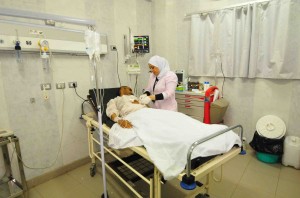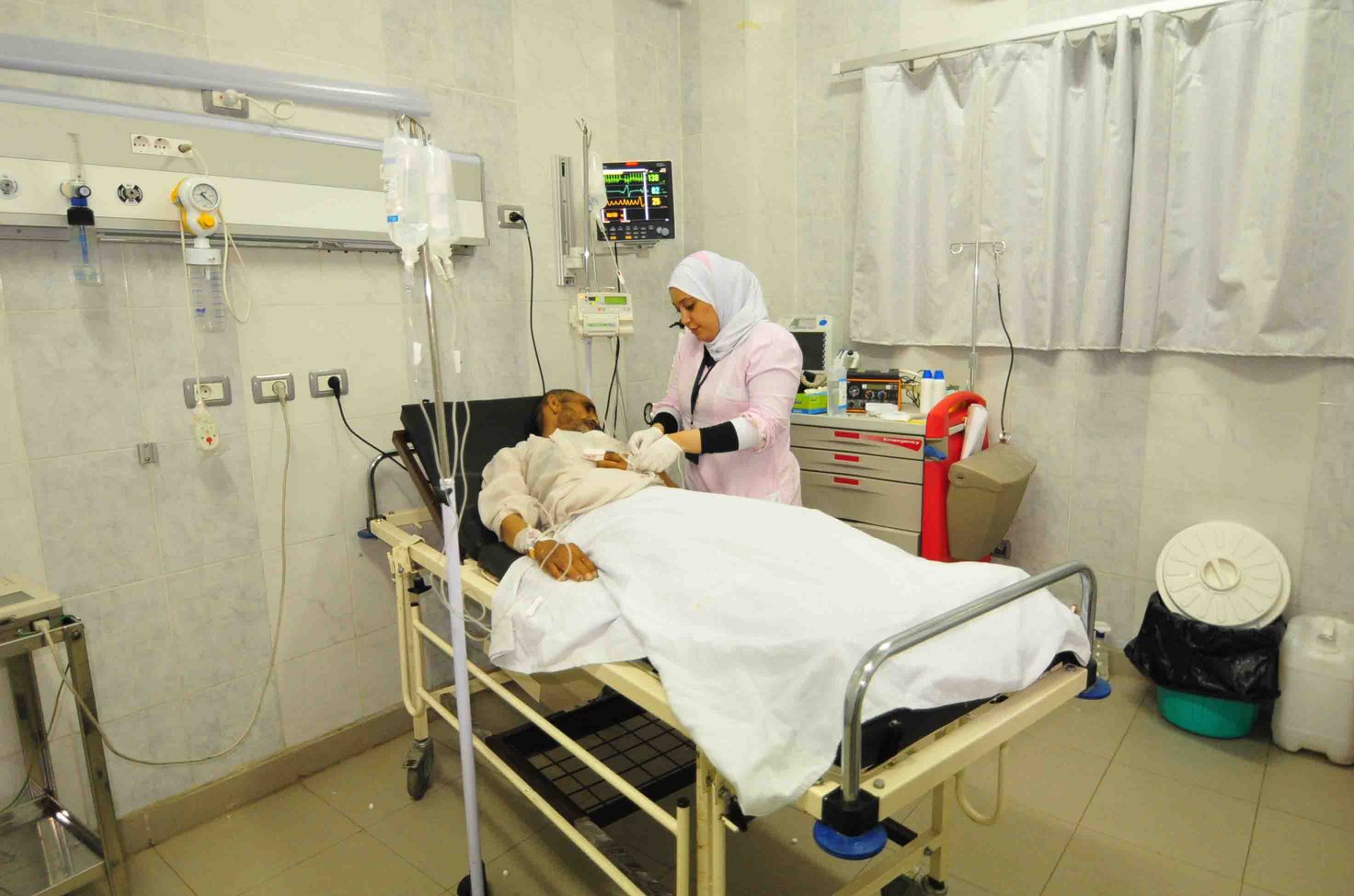
(Photo by Hassan Ibrahim)
The Egyptian Centre for Economic and Social Rights (ECESR) said only 33 beds are available for every 10,000 citizens in Cairo’s hospitals, in a factsheet issued Monday on Egypt’s health conditions.
A campaign was launched on Facebook by an anonymous group of doctors a few days ago, who published images inside public hospitals across different governorates in Egypt. The page shows images of snakes, cats, rats and other animals roaming inside clinics and on patients’ beds. The pictures also showed patients lying on the floor for treatment, damaged tools and infrastructure, and poor-quality dorms used by doctors and nurses. It drew 100,000 likes within just a few hours of its launch.
Prime Minister Ibrahim Melheb visited the Imbaba cardiology centre on Saturday in an alleged inspection of its conditions. During the visit, he decided to switch the health minister’s office to the centre for one week and make it rotational for other medical centres and hospitals in Egypt.
“I was already aware of the situation in the centre before my visit, and I knew what we were targeting,” Mehleb said in a phone call on a private TV channel.
The ECESR report mentioned that the amount of governmental expenditures on healthcare in Egypt is 5.4%, which is far less than other countries in Africa, such as Djibouti, which has healthcare expenditures upwards of 14%.
“There is total negligence to nursing centres in provinces, and whenever we voice our concerns to the syndicate, they suggest for us to join the syndicate instead of identifying a clear plan to solve the problem form its roots,” a Nursing Rebel Movement member told Daily News Egypt.
Health Minister Adel Hassan Al-Adawi said: “The movement was made as a result of Mehleb’s visit, and I notified him days earlier that I am going to move my office to the Imbaba centre; he only came to support my action.”
The government is reportedly negotiating with the World Bank to receive a new loan of $300m to support healthcare in government hospitals. This is set to occur through the provision of medical equipment and the removal of deficient drugs from government hospitals.
In February, the World Bank loaned $275m to the Egyptian government to support and provide comprehensive health care to all Egyptian families during the next five years. The selected families reside in the poorest 1,000 villages, 93% of which are based in Upper Egypt.






